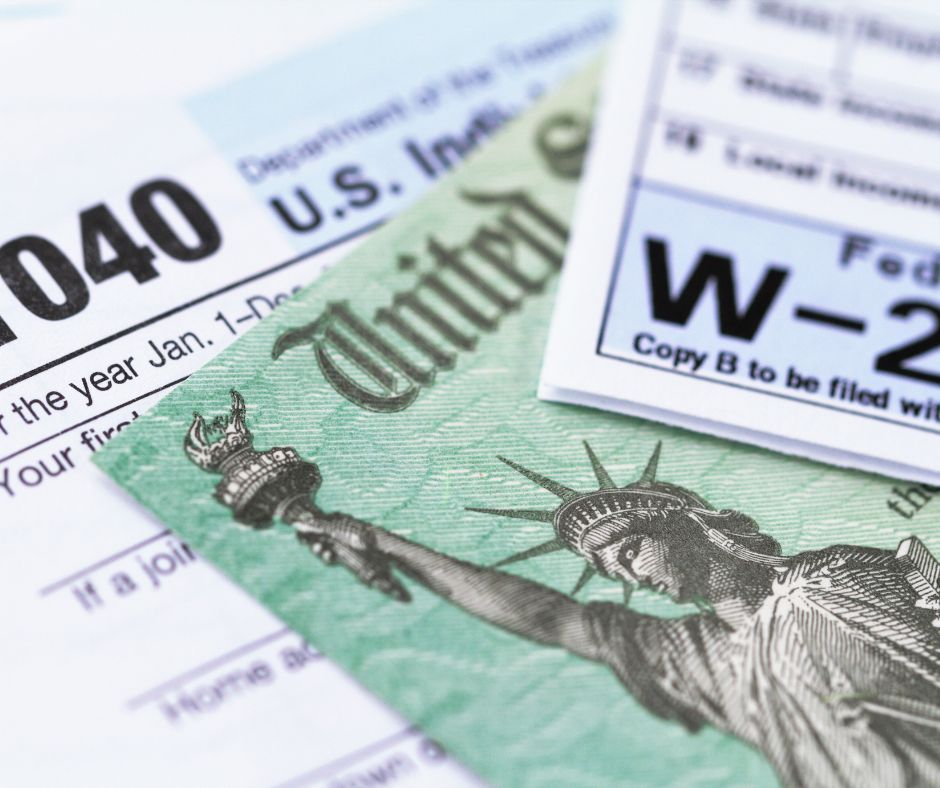Karsten Desario
-Founder
Karsten Desario is the founder of Kinetic Movers in York, Pennsylvania. You can often find him helping his crews accomplish the best moving services around the state of Pennsylvania and beyond.
Moving can be a stressful and expensive experience, but it doesn't have to be. It's possible to save money on your move while taking advantage of tax deductions that make the process more affordable. Knowing how to calculate your moving expenses and claim them on your tax return can help you maximize savings and minimize costs. In this article, we'll explore the details of calculating and claiming moving expenses on your taxes so you can get the most out of your move.
Reducing moving costs and knowing tax deductions are essential. With the correct information, you can take advantage of all available deductions and claim them on your taxes when filing season rolls around. Understanding what qualifies as a legitimate deduction and how to calculate these expenses for maximum savings correctly is necessary. We'll walk through each process step, so you know exactly what to do when filing.
Understanding how to calculate your moving expenses is essential to smooth the transition. We will look at how to estimate the cost of your move and factor that into your taxes.
Initially, you'll need to figure out what type of relocation you're making. If you're moving for work or school, you can deduct various costs from your tax return. This includes travel expenses such as gas, lodging, and any costs associated with packing and storing belongings. You'll also want to consider additional services, such as hiring full-service moving or renting a truck.
Next, you should consider the location of the move. The distance between your current residence and your new home is essential when calculating your moving expenses. Generally speaking, if the space is more than 50 miles, you may be eligible for certain tax deductions. Additionally, if the move was due to a job-related change in location, more deductions are available depending on the situation.
It's also important to take note of any other moving-related expenses that deductions may not cover. These could include items like rental deposits or utility connection fees, often overlooked but can add up over time. To get a better idea of these costs and ensure they don't come as a surprise down the line, do some research beforehand so that you can plan accordingly.

Now that you have an estimate of the cost of your move, it's essential to ensure you are keeping track of all your moving expenses. Gathering receipts for every payment related to your activity will ensure you maximize your tax return's deductions.
Recording each receipt and saving it for future reference is a great way to keep track of spending and save money in the long run. All transportation costs associated with the move should be documented, such as gas mileage, airline tickets, or train fares. Any supplies or materials purchased for the activity, such as boxes, tape, storage containers, and packing materials, should also be recorded. Keep those receipts handy if you hired professional movers for part or all of the relocation processes.
You can also claim some expenses related to lodging if necessary during the move. This could include hotel stays or meals while traveling to and from your new home. However, only certain meals can be claimed, so be mindful when recording those receipts.
After the second step, calculating your moving expenses determines your eligibility for tax deductions. Generally, you must meet specific requirements to be able to deduct any expenses related to your move. The IRS has specific criteria that must be met to qualify for the Moving Expense Deduction.
The move must have been related to the start of a new job, or military orders must have caused it. If the move was due to a job relocation, it must have occurred within one year of starting at a new location. Furthermore, this new job must be at least 50 miles farther from your old home than your previous workplace.
You may only deduct moving-related expenses if you are employed full-time and will remain so for at least 39 weeks during the 12 months following the date of your move. Self-employed individuals who work full-time and satisfy these criteria can also take advantage of the deduction. Finally, there is an additional requirement that taxpayers cannot claim moving expenses and reimbursement from their employer for those same expenses on their tax returns; they are only allowed one or the other.

When calculating the reimbursement amount for your moving expenses, there are a few things you need to consider. Keeping track of all your receipts is essential to calculate the costs associated with the move accurately. This includes transportation costs, storage fees, and other related expenses incurred during your relocation. Additionally, you should factor in any deductible expenses, such as charitable donations or medical bills, that are applicable.
Once you have identified all of your legitimate moving expenses, it is time to calculate the total reimbursement amount. To do this, add all the amounts for each cost and subtract any deductible items from the total. You should then be left with an accurate figure for what is eligible for reimbursement on your tax return.
When filing your tax return, it's essential to understand the time limit for claiming moving expenses. Generally speaking, you have one year from the date of your move to make sure you declare any qualified moving expenses on your taxes. Any costs incurred more than a year before or after your activity will not be eligible for reimbursement.
The IRS requires that you file an amended return if you need to include any moving-related costs in the original filing. Note that all related expenses are best to ensure all deductions are included and accounted for immediately. Be sure to save copies of receipts and other documentation that can help verify the amount you spent on moving-related costs in case you're audited.

Once you've gathered all your moving expenses and understand the time limit for claiming them, the next step is to prepare the necessary tax forms. Depending on your situation, there may be several different forms that you'll need to fill out. If you're self-employed, you'll likely need to file Form 3903 with your taxes. This form deducts any qualifying moving expenses incurred during your move. Additionally, if you receive income from an employer who paid for some of your moving costs, they should provide a Form W-2 that shows how much they paid and how much you're eligible to write off on your taxes.
Ensuring all the information on the forms is correct and accurate is essential. Please correct mistakes while filing or submitting these forms to ensure timely receiving reimbursement or deductions from your taxes. Additionally, it's necessary to ensure that all documents are correctly dated and signed when submitting them as part of filing your taxes. This will prove that you adequately filed and can help avoid issues when dealing with an audit or dispute with the IRS.
To ensure a smooth process for filing your taxes with moving expenses included, it's best to contact a qualified tax advisor or accountant who can ensure everything is done correctly from start to finish. In addition, they can answer any questions about filing requirements and help ensure everything is done according to the procedure so that there won't be any issues come tax season when it comes time for claiming deductions or reimbursement for moving costs.
Deducting moving expenses from your tax return, there are some exceptions you should be aware of. These exceptions may affect which moving expenses can be deducted from your taxes.
For instance, if you're moving for a job outside the United States and its territories, those expenses aren't eligible for deduction. Similarly, any expenses related to travel or lodging are also not deductible. However, you can still claim the cost of packing and transporting your furniture and possessions.
On the other hand, if you're a U.S. military member transferring on official orders, you can still deduct most of your moving expenses even if they exceed the distance requirements outlined in IRS Publication 521. This includes costs related to travel and lodging as well as storage fees associated with transporting your belongings to another location during the move itself.
Knowing these exceptions can help you take advantage of all available deductions when filing your yearly taxes. In addition, by understanding what is and isn't deductible, you can ensure you get the most out of any deductions applicable to your situation.
When an employer pays for all or part of the cost of a move, the reimbursement is generally considered a nontaxable payment. This means the money received from your employer is not included in your income and does not need to be reported on your tax return. However, certain limits exist on how much an employer can pay for a move to be considered nontaxable. For example, if they spend more than $21,600 in moving expenses, the excess amount must be added to their taxable income.
It's also important to note that any reimbursements from third parties, such as charities or friends, cannot be deducted from your taxes. Additionally, suppose you receive a refund for services related to a move, such as packing or storing items. In that case, these payments are also subject to taxation unless they meet specific requirements set by the IRS.

When calculating the tax benefit of claiming moving expenses, it's essential to understand how the IRS defines them. Moving expenses are related to a move due to a job change or health-related reasons, typically including packing, insurance, and transportation costs. However, not all types of reimbursements can be claimed as deductions on your taxes; some are considered nontaxable.
Understanding how much you can claim on taxes for moving expenses is also essential. Generally speaking, you can deduct any reasonable cost incurred during the move directly related to the relocation. This could include lodging during travel, storage fees for household items during the move, and other miscellaneous expenses such as meals or gas for transportation.
Knowing what qualifies for the deduction and what doesn't is vital when preparing your taxes concerning moving expenses. Furthermore, save all documentation from your move — receipts and invoices — so that you have proof of purchase in case the IRS audits you. Doing this will ensure that everything goes smoothly when filing for deductions on your tax return.

New Paragraph

Karsten Desario
-Founder
Karsten Desario is the founder of Kinetic Movers in York, Pennsylvania. You can often find him helping his crews accomplish the best moving services around the state of Pennsylvania and beyond.

Our professional and experienced team at Kinetic Movers & Storage is dedicated to making your move as stress-free as possible.
USDOT# 3841511
MC# 1402856
PA PUC# A-8925417
Copyright © 2025 Kinetic Movers & Storage | Terms and Conditions | Privacy Policy